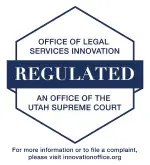Elysium Wealth Management, LLC is registered with the Securities and Exchange Commission as an investment adviser and, as such, we provide advisory services rather than brokerage services. Brokerage and investment advisory services and fees differ and it is important for you, our client, to understand the differences. There are free and simple tools are available to research firms and financial professionals at Investor.gov/CRS, which also provides educational materials about broker-dealers, investment advisers, and investing. This document is a summary of the services and fees we offer to “retail” investors, which are natural persons who seek or receive services primarily for personal, family, or household purposes.

CRS Disclosure

What investment services and advice can you provide me?
We offer the following investment advisory services to retail investors: Financial Planning Services; Portfolio Management Services; Selection of Other Advisers; Educational seminars/workshops. We will meet with you to understand your current financial situation, goals and risk tolerance. Based on what we learn, we will recommend the appropriate investment advisory service.
Account Monitoring: We will conduct an internal review of your account on at least a quarterly basis. We will monitor our portfolio of investments on a continuous basis.
Investment Authority: We manage investment accounts on a discretionary basis whereby we will decide which investments to buy or sell for your account. We have discretion to select, retain or replace third-party managers to manage your accounts. You may limit our discretionary authority (for example, limiting the types of securities that can be purchased or sold for your account) by providing our firm with your restrictions and guidelines in writing. We will also manage accounts on a non-discretionary basis which means that you make the ultimate investment decisions regarding purchase or sale of investments.
Investment Offerings: We provide advice on various types of investments. Our services are not limited to a specific type of investment or product.
Account Minimums and Requirements: In general, we do not require a minimum dollar amount to open and maintain an advisory account; however, we have the right to terminate your account if it falls below a minimum size which, in our sole opinion, is too small to manage effectively.
Detailed information regarding our services, fees and other disclosures can be found in our Form ADV Part 2A Items 4, 7, and 8 by clicking this link https://adviserinfo.sec.gov/firm/brochure/312068.
Key Questions to Ask Your Financial Professional
• Given my financial situation, should I choose an investment advisory service? Why or Why Not?
• How will you choose investments to recommend to me?
• What is your relevant experience, including your licenses, education and other qualifications?
• What do these qualifications mean?
What fees will I pay?
The following summarizes the principal fees and costs associated with engaging our firm for investment advisory services.
• Asset Based Fees – Payable quarterly in advance. Since the fees we receive are asset-based (i.e. based on the value of your account), we have an incentive to increase your account value which creates a conflict especially for those accounts holding illiquid or hard-to-value assets. Our typical fee range between 0.9% and 1.5% annually.
• Hourly Fees – We charge up to $350 per hour to meet with and design your plan. Fees for this service are due upon delivery of the completed plan. We may decide to waive the financial planning fee if you decide to utilize our investment management services to implement your plan.
• Other Advisory Fees – In addition to our fees, we are also compensated by:
• Advisory fees charged by third party money managers, which are separate and apart from our fees.
Examples of the most common fees and costs applicable to our clients are:
• Custodian fees;
• Account maintenance fees;
• Fees related to mutual funds and exchange-traded funds;
• Transaction charges when purchasing or selling securities; and
• Other product-level fees associated with your investments
You will pay fees and costs whether you make or lose money on your investments. Fees and costs will reduce any amount of money you make on your investments over time. Please make sure you understand what fees and costs you are paying. For detailed information, refer to our Form ADV Part 2A, Items 5 and 6 by clicking this link
https://adviserinfo.sec.gov/firm/brochure/312068.
Key Questions to Ask Your Financial Professional
• Help me understand how these fees and costs might affect my investments. If I give you $10,000 to invest, how much will go to fees and costs, and how much will be invested for me?
What are your legal obligations to me when acting as my investment adviser? How else does your firm make money and what conflicts of interest do you have?
When we act as your investment adviser, we have to act in your best interest and not put our interest ahead of yours. At the same time, the way we make money creates some conflicts with your interests. You should understand and ask us about these conflicts because they can affect the investment advice we provide you. Here are some examples to help you understand what this means.
• Third-Party Payments: Persons providing investment advice on behalf of our firm are licensed as independent insurance agents. These persons will earn commission-based compensation for selling insurance products. Insurance commissions are separate and in addition to our advisory fees. This practice presents a conflict of interest because they have an incentive to recommend insurance products to you for the purpose of generating commissions rather than solely based on your needs.
• Some Persons providing investment advice on behalf of our firm are also associated with our affiliated legal and accounting services. These persons associated with the entities will earn compensation for providing legal or tax advice. This compensation is separate and in additional to our advisory fees. This practice presents a conflict of interest because they have an incentive to recommend the legal or tax services of our associated entities to you. You are under no obligation to participate in the legal or accounting services offered by our affiliated entities.
• Because our revenue is derived from asset-based fees, we have an incentive to grow your account as much as possible. This could cause us to take overly aggressive positions in conflict with your interests in an attempt to grow your account or could incentivize us to inflate the valuations of illiquid investments held in your account.
Key Questions to Ask Your Financial Professional
• How might your conflicts of interest affect me, and how will you address them?
Refer to our Form ADV Part 2A by clicking this link https://adviserinfo.sec.gov/firm/brochure/312068 to help you understand what conflicts exist.
How do your financial professionals make money?
The financial professionals servicing your account(s) are compensated either by a variable or fixed monthly or quarterly amount. Each financial professional may receive compensation based upon factors such as the portion of the advisory fees that the firm collects from the accounts each professional manages, the time and complexity of the professional’s services, and also the overall revenues of the firm.
Do you or your financial professionals have legal or disciplinary history?
No, our firm and our financial professionals currently do not have any legal or disciplinary history to disclose. Visit Investor.gov/CRS for a free and simple research tool.
Key Questions to Ask Your Financial Professional
• As a financial professional, do you have any disciplinary history? For what type of conduct?
You can request up-to-date information and request a copy of the relationship summary at 385-276-4716. You can also find additional information about your investment advisory services by clicking the link provided https://adviserinfo.sec.gov/firm/brochure/312068.
Key Questions to Ask Your Financial Professional
• Who is my primary contact person?
• Is he or she a representative of an investment adviser or a broker-dealer?
• Who can I talk to if I have concerns about how this person is treating me?


